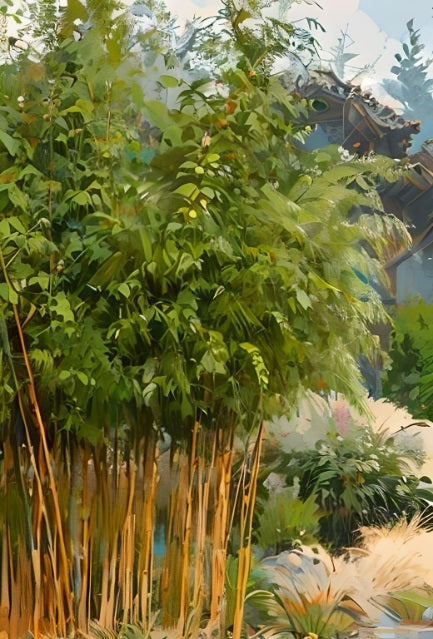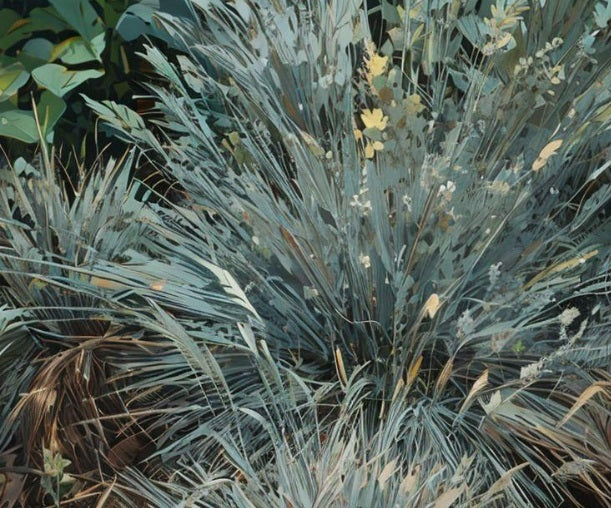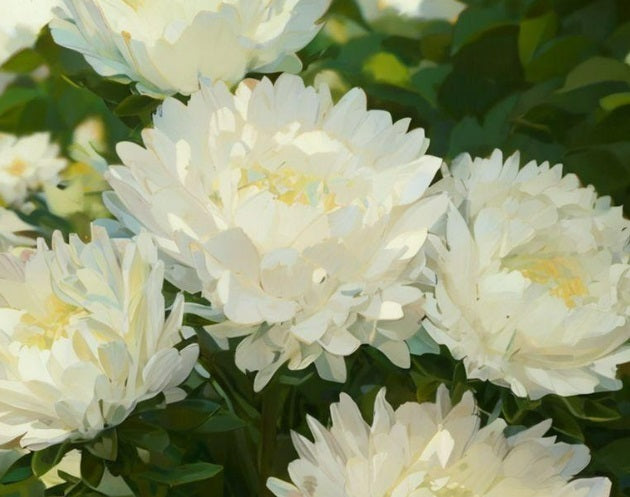Planting Bamboo Seeds
Planting Bamboo Seeds: Can I plant bamboo seeds directly in the ground?
Generally speaking, it is not advisable to sow bamboo seeds in open ground. During flowering events, bamboo will first show flowers which then develop into seed pods characteristic for each species. The seeds continue to develop and loosen from the pods to fall naturally from the bamboo branches. Interestingly, while almost all viable bamboo seeds commence germination after they have fallen to the ground, there are a few bamboo species whose seeds begin germinating while still in the seed pod attached to the bamboo branch.
Seed fall is hastened by wind and other mechanical disturbance of the flowering branches. Thousands of seeds might eventually fall from any one mature bamboo. In the wild, a bamboo grove will generally be carpeted with a natural mulch composted from fallen bamboo leaves and branches, creating a loosely compacted, silica-rich environment for viable bamboo seeds to naturally germinate and develop.
Even in optimal environmental conditions in the wild, a proportionally small percentage of seeds will actually germinate, many having been consumed by wildlife such as rodents and birds, some dropping before full maturation/viability, and some simply not viable for any number of genetic/biological processes during seed creation and development.
Bamboo is a grass, and like most grass species, bamboo seeds are heavily foraged and consumed. Overly wet or dry conditions can significantly impact seed viability and germination, as can temperature excesses whether too hot or too cold. Ground disturbances, typically by passing animals and humans, can easily crush newly emerging seedlings. Consider the effort typically needed to successfully sow and grow commercial lawn grass seed, which requires appropriate soil prep, watering, and protection from predators, excess sunlight, cold, and frost/freeze to support germination and growth.
Commercially grown grasses (rye, wheat, etc.) are now primarily grown from seeds specifically modified, patented, and controlled for enhanced germination and growth in geographically targeted conditions, and at a substantial volume that supports maximum crop viability. There is a tremendous amount of scientific research and development, with highly precise ongoing care and maintenance, of commercial grass agriculture, that makes it not only possible but preferable to sow large-scale food crop grasses directly into ground.
While under active research and development worldwide, the science for mass open planting of bamboo seeds is not yet well established, and bamboo grass grown even in large-scale horticultural environments still remains subject to human involvement, oversight, and management particularly in the early germination and seedling phases.
With a simple setup and a consistent process, germinating bamboo seeds for eventual planting out of doors is a comparatively low-cost, low effort endeavor, especially considering the high returns demonstrated by bamboo quickly growing and contributing to beautiful landscapes, privacy hedges, windbreaks, sound reduction barriers, erosion control, carbon reduction, manufacturing and construction, and so much more.
In short, it’s best to leave natural bamboo seed sowing in the wild to Mother Nature. Even at the smaller scale of the typical home gardener, successful bamboo seed germination and seedling development are significantly enhanced when conducted under controlled conditions with balanced humidity, temperature, light, oxygen, and organic nutrients. Please see our guides,Bamboo Seed Germination and When to Germinate Bamboo Seeds, for helpful recommendations and tips.
Collections
-

All Bamboo Seeds for Sale
Welcome to our catalog of bamboo plant seeds for sale including clumping...
-

All Ornamental Grass Seeds
Grass has finally come into its own as a garden landscape centerpiece....
-

All Flower Seeds
All of our 2025 flower seeds are sold out. Please check back...



